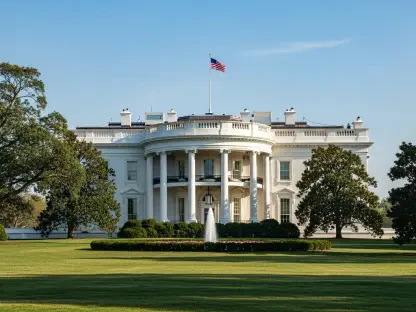Overview of Iraq’s Banking Sector
The banking sector in Iraq stands at a critical juncture, grappling with systemic inefficiencies while playing a pivotal role in the nation’s economy, which heavily relies on oil revenues. As a cornerstone of financial stability, the sector facilitates transactions, credit provision, and investment, yet it struggles to meet modern demands due to structural limitations. With a significant portion of the population still unbanked, the industry’s inefficiencies ripple across broader economic development, stifling growth in non-oil sectors.
Key players in this landscape include state-owned giants like Rafidain Bank and Rashid Bank, which dominate the market, alongside a growing number of private banks that often lack the capital and infrastructure to compete effectively. The Central Bank of Iraq (CBI) exerts substantial influence, overseeing monetary policy and regulatory frameworks, yet its capacity to enforce modernization remains constrained by outdated systems. This dynamic creates a fragmented sector unable to fully support Iraq’s economic aspirations.
Historically, the banking industry has been shaped by decades of conflict, sanctions, and political instability, resulting in limited technological adoption and reliance on antiquated financial systems. Many institutions still operate with manual processes, lagging far behind global standards in digital banking and cybersecurity. This technological gap not only hampers efficiency but also undermines trust among potential investors and customers, posing a significant barrier to sectoral progress.
Current Trends and Economic Realities
Outdated Legislation as a Barrier
A major impediment to the banking sector’s growth lies in outdated legislation, such as Law No. 111 of 1969, which governs financial penalties with fines as low as 100 dinars—equivalent to mere cents in today’s economy. Such regulations fail to deter misconduct or align with current economic conditions, rendering enforcement ineffective. This legal stagnation creates an environment where banks struggle to operate within a framework that reflects neither the scale nor the complexity of modern financial transactions.
Further compounding the issue, provisions like Article 28 of the Banking Law restrict dealings in foreign currencies, severely limiting banks’ ability to engage in international trade and investment. These constraints isolate Iraq’s financial institutions from global markets, hampering their competitiveness and ability to attract foreign capital. The disconnect between existing laws and contemporary needs remains a glaring obstacle to sectoral integration with the international financial system.
The persistence of such archaic laws also discourages innovation, as banks are unable to adopt flexible practices or products that could meet evolving customer demands. Without legislative updates, the sector risks remaining trapped in a cycle of inefficiency, unable to support Iraq’s broader economic diversification goals. Addressing this legal inertia is paramount for unlocking the industry’s potential.
Economic Indicators and Sector Performance
Despite its critical role, the banking sector contributes only a modest fraction to Iraq’s GDP, with estimates suggesting it accounts for less than 5% of economic output, a figure dwarfed by the oil industry’s dominance. This limited contribution reflects deep-rooted structural issues, including low credit penetration and a heavy reliance on government deposits rather than private sector engagement. Financial stability is further undermined by high levels of non-performing loans, which burden bank balance sheets.
Performance challenges are exacerbated by legislative and operational constraints, with many banks lacking the capacity to expand services or invest in technology due to restrictive policies. Expert analyses indicate that without reform, the sector will continue to underperform, failing to act as a catalyst for economic growth. The slow pace of change also deters foreign investment, as international partners hesitate to engage with a system perceived as outdated and risky.
Looking ahead, projections suggest that with targeted reforms, the sector could see significant growth over the next few years, potentially doubling its contribution to GDP by 2027 if barriers are addressed. Insights from financial experts underscore the importance of aligning regulations with global standards to unlock this potential. Such progress hinges on decisive action to modernize both policy and infrastructure, paving the way for a more robust financial ecosystem.
Key Challenges Hindering Progress
The path to reform in Iraq’s banking sector is fraught with obstacles, chief among them being rigid legislative processes that slow down the adoption of necessary changes. Lawmaking in the country often faces delays due to political gridlock and bureaucratic inefficiencies, leaving critical updates stalled for years. This inertia prevents the sector from adapting to rapidly changing economic realities and global financial trends.
Another pressing concern is the risk of marginalizing local investors if reforms are not carefully designed, potentially opening the door to foreign dominance in the market. While international partnerships could bring expertise and capital, an imbalance favoring foreign entities might undermine national control over financial systems. Striking a balance between modernization and protecting domestic interests remains a delicate challenge for policymakers.
Practical constraints, such as slow policy implementation and resistance to change within institutions, further complicate the reform agenda. To overcome these hurdles, strategies like capacity building for regulatory bodies, stakeholder engagement to build consensus, and phased implementation of new policies could prove effective. Addressing these challenges requires a concerted effort to align political will with actionable plans, ensuring that reforms translate into tangible outcomes.
Regulatory Landscape and Reform Efforts
The regulatory framework governing Iraq’s banking sector remains rooted in laws that predate modern financial systems, creating a mismatch between policy and current needs. Many of these regulations fail to account for digital transactions, international banking norms, or risk management practices essential for a competitive industry. This outdated framework stifles innovation and limits the sector’s ability to respond to economic shifts.
In response, initiatives like the CBI’s collaboration with the consulting firm Oliver Wyman signal a commitment to sector development through expert-driven strategies. This partnership aims to assess systemic weaknesses and propose actionable reforms, focusing on enhancing operational efficiency and regulatory oversight. While such efforts are promising, the pace and impact of these changes remain uncertain, given the broader challenges of implementation.
A key debate centers on whether to pursue a comprehensive overhaul of banking laws or opt for incremental updates to existing regulations. A full legislative revamp could provide a clean slate but risks prolonged delays due to complex political processes, whereas targeted amendments offer quicker results but may fall short of addressing deeper issues. Weighing the urgency of reform against practical constraints, a hybrid approach combining short-term updates with long-term planning might offer the most viable path forward.
Future Outlook for Iraq’s Banking Sector
Looking toward the horizon, the banking sector holds potential for transformation through the adoption of modern financial technologies and practices, such as mobile banking and blockchain solutions. Embracing digital tools could enhance accessibility, particularly for underserved populations, while improving transparency and efficiency in transactions. However, realizing this vision requires significant investment in infrastructure and skills development.
Global economic trends, including the push for sustainability and digitalization, underscore the need for Iraq to align with international standards to remain competitive. Integration into global financial networks could attract foreign investment and facilitate trade, but it demands robust regulatory frameworks to manage risks. Failure to keep pace with these trends risks further isolating the sector from opportunities on the world stage.
Emerging opportunities, such as expanding microfinance and Islamic banking, could drive growth if reforms are prioritized, offering avenues to diversify services and reach new markets. Conversely, persistent delays in addressing legislative and structural barriers could exacerbate vulnerabilities, leaving the sector ill-equipped to handle economic shocks. The future trajectory hinges on the ability to balance modernization with stability, ensuring that progress benefits the broader economy.
Conclusion and Path Forward
Reflecting on the insights gathered, it becomes evident that Iraq’s banking sector stands at a pivotal moment, wrestling with the burden of outdated systems while yearning for modernization. The discussions highlighted a shared recognition among stakeholders of the urgent need to update regulations and embrace technological advancements to bolster economic stability.
Moving forward, actionable steps emerged as critical, starting with immediate amendments to existing laws to address glaring inefficiencies, such as negligible fines and currency restrictions. Simultaneously, laying the groundwork for comprehensive legislative reform through stakeholder collaboration and international expertise was seen as essential to ensure long-term resilience.
Beyond these measures, fostering a culture of innovation by incentivizing digital adoption and protecting national interests against potential foreign overreach was deemed a priority. These strategies, if pursued with determination, offer a roadmap to transform the sector into a dynamic engine of growth, capable of supporting Iraq’s broader economic ambitions in an interconnected world.









